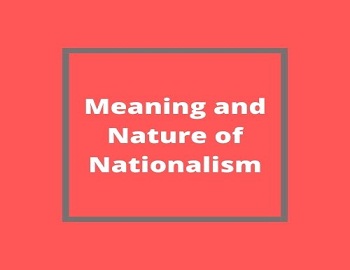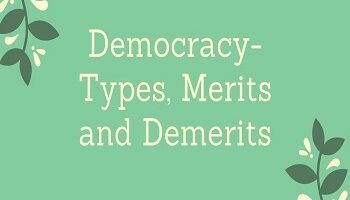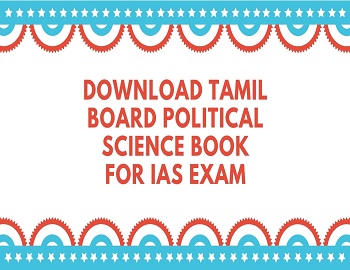Table of Contents
Directive Principles Of State Policy GK:
- The idea of Directive Principles revolves around the concept of which kind of state- Welfare State.
- Who serves as guidelines to be kept in mind by the government while framing its policies- Directive Principles.
- Which articles of the Constitution of India contains Directive Principles of State Policy- Article 36 to 51.
- Indian Constitution borrowed Directive Principles of State Policy from which Constitution of the world- Irish Constitution of 1937.
- Directive Principles of State Policy are enumerated in which part of the Constitution- Part IV.
- Who described the Directive Principles of State Policy as “novel features” of the Indian Constitution- Dr. B.R.Ambedkar.
- Who called the Directive Principles of State Policy and the Fundamental Rights as the “Conscience of the Constitution”- Granville Austin.
- The Directive Principles of State Policy is non-justiciable which means- they are not legally enforceable by the courts for their violation.
- The Directive Principles of State Policy establishing which kind of democracy in the country- Social and Economic democracy.
- Who aims at establishing political democracy in the country- Fundamental Rights.
- In which case the Supreme Court held that “the Indian constitution is founded on the bedrock of the balance between the Fundamental Rights and the Directive Principles”- Minerva Mills Case (1980).
- Which article states that Directive Principles are ‘fundamental in the governance of the country’ and ‘it shall be the duty of the state to apply these principles in making law’- Article 37.
Classification of Directive Principles:
Principles Promoting Social and Economic Justice :
The state shall endeavour to achieve Social and Economic welfare of the people by:
Article 38–
- To promote the welfare of the people by securing a social order permeated by justice- social, economic, and political.
- To minimize inequalities in income, status, facilities, and opportunities.
Article 39-
- to provide adequate means of livelihood to all citizens.
- to achieve common good through proper distribution of material resources.
- to prevent the concentration of wealth in few hands.
- securing equal pay for equal work for both men and women.
- preservation of the health and strength of workers and children against forcible abuse.
- Opportunities for the healthy development of children.
Article 39A– To promote equal justice and to provide free legal aid to the poor.
Article 41– To secure the right to work and education and to make available public assistance in old age, sickness, disability or unemployment.
Article 42- To make provision for just and humane conditions for work and maternity relief.
Article 43– To secure work, a living wage, decent standard of living and social and cultural opportunities for all workers.
Article 43A– To secure the participation of the workers in the management of industries.
Article 47– To raise the level of nutrition and the standard of living of people and to improve public health.
Principles Promoting Gandhian Values:
There are certain principles, based on the ideals advocated by Mahatma Gandhi. These Principles are as follows:
Article 40– Establish village panchayats as units of local self-government.
Article 43– To promote cottage industries on an individual or co-operation basis in rural areas.
Article 46– To promote the educational and economic interests of SCs, STs, and other weaker sections of the society and to protect them from social injustice and exploitation.
Article 47– To prohibit the consumption of intoxicating drinks and drugs which are injurious to health.
Article 48– To preserve and improve the breeds of the cattle and prohibit the slaughter of cows, calves, and other milch and drought animals.
Liberal-Intellectual Principles:
Article 44– To secure for all citizens a uniform civil code throughout the country.
Article 45– To provide early childhood care and education for all children until they complete the age of six years.
Article 48– To organize agriculture and animal husbandry on modern and scientific lines.
Article 48A– To protect and improve the environment and to safeguard forests and wildlife.
Article 49– To protect monuments, places and objects of artistic or historic interest which are declared to be of national importance.
Article 50– To take steps to separate judiciary from executive.
Article 51–
- Promote international peace and security.
- Maintain just and honorable relations between nations.
- Foster respect for international law and treaty obligations in the dealings of organized peoples with one another.
- Settle international disputes through arbitration.
Directive Principles added by 42nd Amendment Act 1976:
- Article 39– Opportunities for the healthy development of children.
- Article 39A– To promote equal justice and to provide free legal aid to the poor.
- Article 43A– To secure the participation of the workers in the management of industries.
- Article 48A– To protect and improve the environment and to safeguard forests and wildlife.
Directive Principle added by 44th Amendment Act 1978:
- Article 38– To minimize inequalities in income, status, facilities, and opportunities.
Directives in other parts (not in Part IV) of the Constitution:
Though Part IV of the Indian Constitution formally deals with the provision of Directives Principles of State Policy there are some Directives that are enumerated in some other parts. These Directives are also non-justiciable in nature.
- Article 335– The claims of the Scheduled Castes and Scheduled Tribes shall be taken into consideration, consistently with the maintenance of efficiency of administration, in the making of appointments to services and posts in connection with the affairs of the Union or of a State.
- Article 350A– of the Indian Constitution enjoins every State and every local authority within the State to provide adequate facilities for instruction in the mother-tongue at the primary stage to the children of linguistic minorities.
- Article 351– enjoins the Union to promote the spread of the Hindi language so that it may serve as a medium of expression for all the elements of the composite culture of India.









Comments (No)